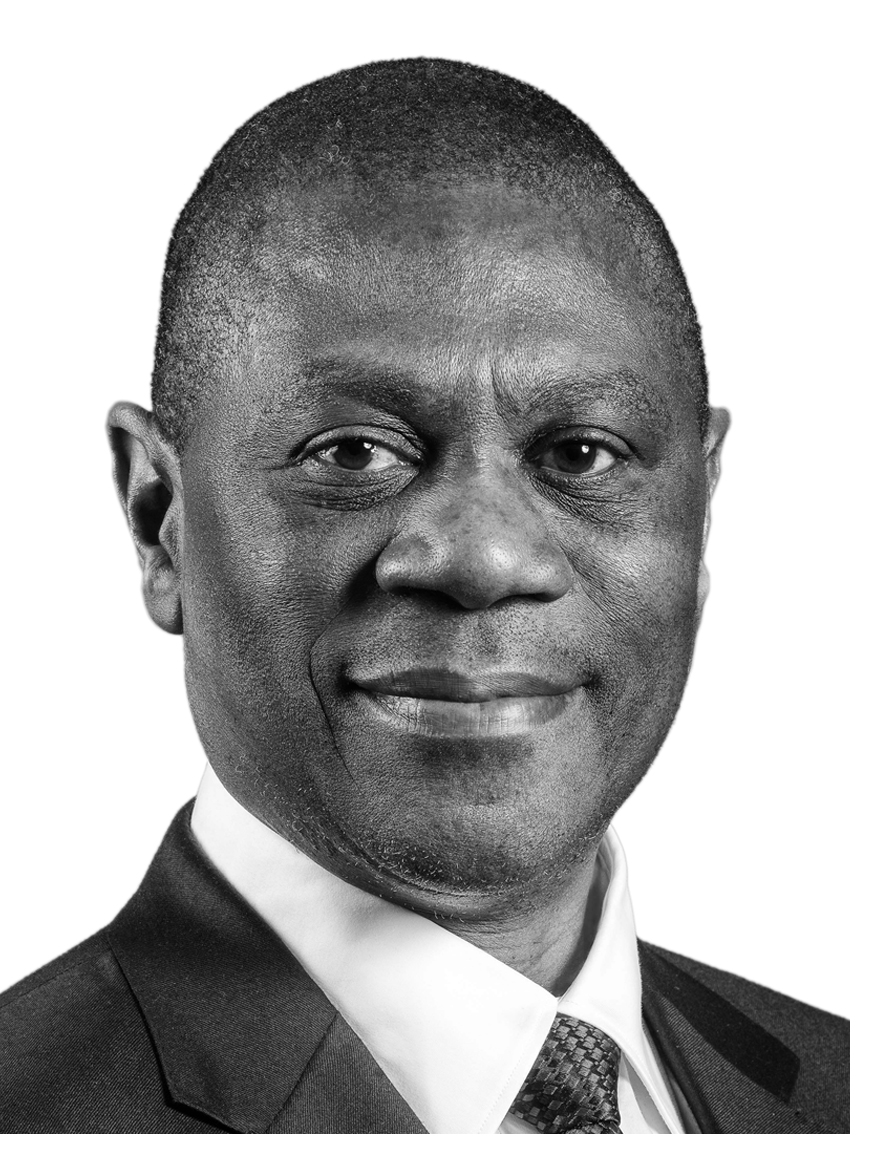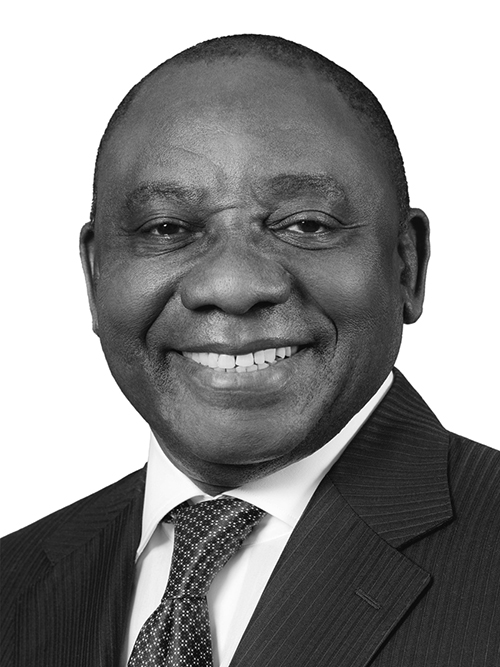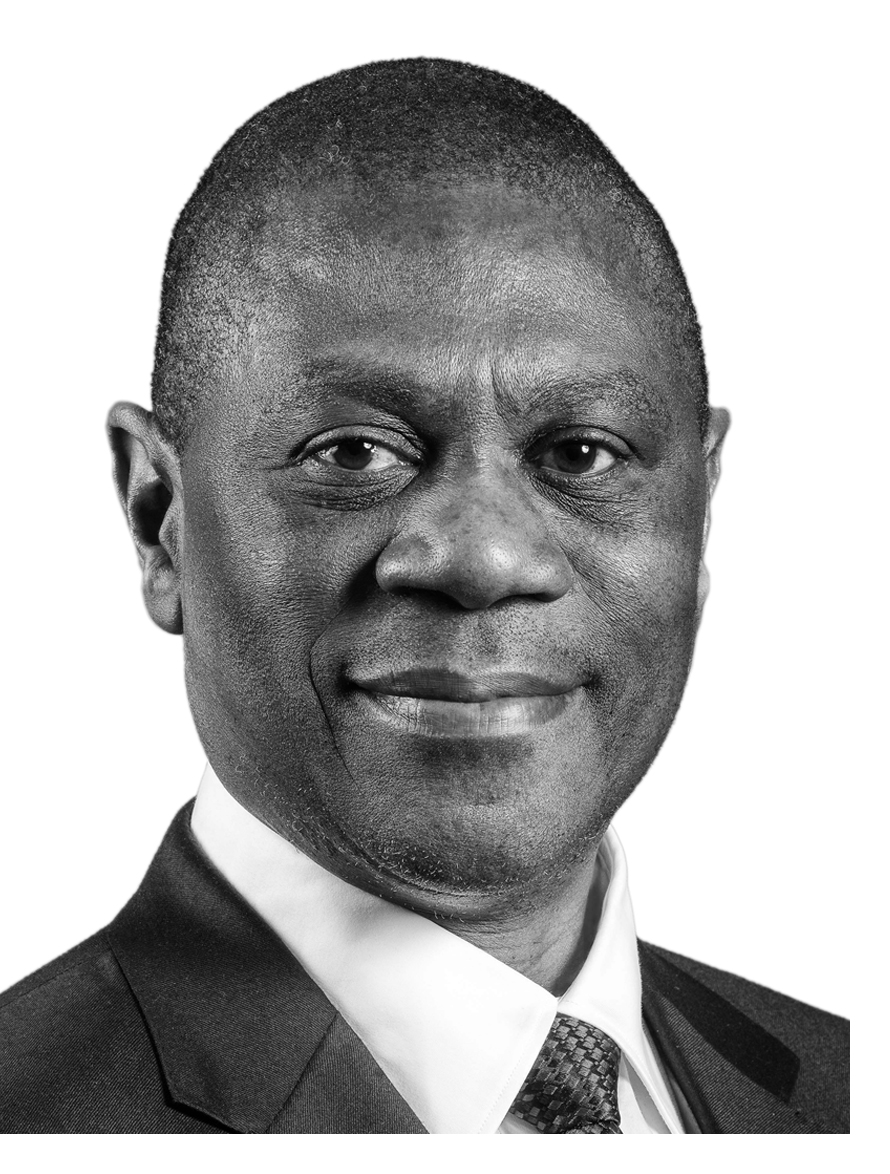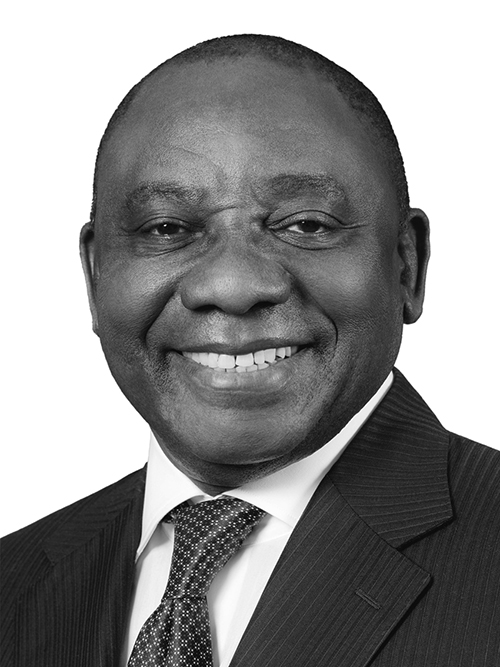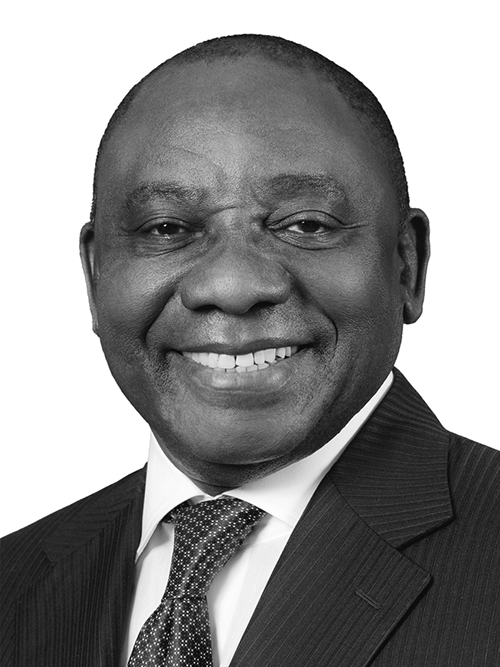Programme Directors,
Premier of Limpopo, Dr Phophi Ramathuba,
Ministers and Deputy Ministers,
MECs,
Officials,
Ladies and gentlemen,
Thank you to Premier Ramathuba for the warm welcome.
Today’s meeting is significant in a number of respects.
Firstly, it marks the start of a programme by the National Executive to visit all the provinces in the coming months and to engage directly with their leadership.
Secondly, it is the first high-level, bilateral engagement of this nature with provinces under the 7th Administration and the Government of National Unity.
As we strive for greater alignment between the developmental priorities of national and provincial governments, there is a need for Ministers to engage more directly and regularly with their provincial counterparts.
On the one hand, this enables the National Executive to have better line of sight of provincial programmes. On the other hand, it enables provincial executive councils to better align their developmental roadmap with national plans.
This is an imperative mandated by the Constitution.
The Constitution enjoins all spheres of Government and organs of State to provide governance that is effective, transparent, accountable and, importantly, coherent, and that clearly serves the people of South Africa.
Section 41 of the Constitution outlines the obligation of different spheres of Government to cooperate with one another, assist one another, coordinate with one another and consult on matters of common interest.
The spheres of Government are to do so while respecting the scope of their respective powers and functions.
The Constitution furthermore provides for the establishment of structures and mechanisms to facilitate intergovernmental relations.
It is our expectation that this engagement further opens up the space for more meaningful intergovernmental relations.
This is quite unprecedented. It opens up more opportunities for relations between the spheres of Government, including local government.
The achievement of synergy between national, provincial and local development must be the impetus behind the District Development Model, which we introduced in 2019 under the Sixth Democratic Administration.
Although we have seen notable progress under this new way of working, particularly with respect to the One Plan model, we can and must work even better to spread the effectiveness of this model.
The Government of National Unity has identified a set of key priorities for the term of its administration.
These are: driving inclusive growth and job creation; reducing poverty and tackling the high cost of living; and building a capable, ethical as well as a developmental state.
Our collective focus now is on marshalling the necessary will and resources to finalise and implement the Medium-Term Development Plan.
Driving economic growth that is inclusive and transformational is at the centre of our national agenda. Provinces have a critical role to play in this effort.
Improving service delivery, accelerating job creation and growing provincial economies are as much a priority for provinces as they are for National Government.
What will be critical in the coming months is a razor-sharp focus on the actions that we all need to take to enable provinces to leverage their respective endowments – be they avocados, minerals or citrus fruit – to ensure that that endowment is more effectively used for economic growth.
Provinces need to use their comparative advantages to drive economic activity.
Premier, you have already defined your province as being very good in various areas, such as human capital, youth capability, good education, minerals, agriculture, that should stand you in good stead.
We have provinces, for example, with vast tracts of arable land. But because of under-utilisation of that land or slow land reform, their contribution to agricultural output is far below their potential.
The same can be said about areas like tourism, an important and growing economic sector. The natural splendour of many, if not all our provinces, should be attracting far more tourism numbers.
Some provinces are extracting large amounts of minerals from the soil, but are not moving to another level. They need to start looking at the second level to beneficiate those minerals.
They need to look at what they need to do to move from primary to secondary to downstream. We need to ask ourselves important questions. That is what has brought us here to have that focused discussion, beyond slogans and ideological precepts, so that we can realise the full value of the endowments that provinces have.
This is the potential that we need to focus on.
We need to move beyond diagnosis of problems.
We need to look at how to overcome the obstacles to provincial endowments being successfully used for development.
It is critical that we understand and work to resolve the structural challenges facing our provinces and local governance that are holding back investment and job creation.
It is important that we ask ourselves: what is holding us back? At a national level, we have identified those obstacles that are holding our national economy back. One of those areas was electricity, and we are glad that load shedding is becoming more and more a thing of past. We have started the reform of our electricity architecture.
The logistics sector is holding us back from exporting the products we produce. It affects mining and agriculture. Our farmers, from Limpopo and throughout the country, require a good logistical infrastructure to take their produce to markets. We are working with social partners to address this issue.
Another area that has been hamstringing us is water. It is an overarching problem throughout the countries, both for communities and productive activity. We have introduced structural reforms, for example, in speeding up water use licence approvals.
The issue of crime has been a major area that requires thoroughgoing reforms.
The reforms are now part of the work of the Government of National Unity.
As Province, we should look at what is holding back growth in the Province. It requires difficult conversations, and that we harness the various role players in the Province and set up task forces that will look at every niche in the Province. What is it that is holding agriculture back? Is there something the Minister of Agriculture that can help with? Is there something that is holding back the distribution of electricity and water? That is why Ministers are here.
We want to set up a mechanism that brings to bear the capabilities at national and provincial level to unlock the energy and capability of our government.
We should look at what progress is being made on existing economic development projects and programmes.
I note for example the progress that is being made around the two designated Special Economic Zones in Limpopo – in particular, the investments made and the various cooperation agreements that have been signed.
As a Province, you have identified two mega SEZs. You do need to put pressure so that those SEZs projects are taken to a higher level. You need to identify your role as a Province to unlock private sector investment.
We need to go and unlock money in the private sector by creating a bright environment for those with money to invest. We should participate with them through public-private partnerships.
Government also has a role to create employment through public employment programmes.
These catalytic projects have immense potential to accelerate industrialisation and create more jobs.
We also welcome the plans Limpopo has to revitalise agriculture and agro-processing and to grow value chains.
Some parts of Limpopo are high value when it comes to agriculture, comparable to high productivity parts of the world.
We look forward to the presentation from the Limpopo Provincial Government on key priority programmes you have set out for yourselves.
I call on our Ministers and their provincial counterparts to use this as an opportunity to open up channels of communication.
This visit is an opportunity to listen to counterparts at a local level to listen to some of the challenges you have and the vision you have for the Province.
This is a forum to identify the interventions needed on the part of National Government for provincial MECs to get the work done.
As The Presidency, we are also here to hear what must be done from our side to resolve bottlenecks and other challenges.
We hope to be able to engage with you on how the ongoing structural reform process, those which we are driving through Operation Vulindlela affects your areas of work.
This first engagement between the National Executive and the Limpopo Executive Council must set the tone and agenda for future cooperation.
From here, we will go to KwaZulu-Natal and then to other provinces. Our plan is to go to each province over the course of one year. We engage with provinces on an ongoing basis through MinMecs and other forums, and we engage with people through izimbizo. This is the Government that we want to make more capable and accessible to the people.
We have to set our collective sights on what must be done to ensure provinces economic development plans align with the broader national economic vision.
Limpopo is perfectly positioned to lead the country in a number of key sectors, including in agriculture, tourism, freight and logistics, and also mineral resources.
The Province is set to play a major role in the green economy transition.
Limpopo possesses a number of critical energy transition minerals, including platinum, and has been designated as a site for the proposed hydrogen valley.
We are pleased at the work already underway in this regard.
Limpopo, by way of geographical positioning, is South Africa’s gateway to the continent.
This Province is well positioned to strengthen South Africa’s links to the rest of our beloved African continent under the African Continental Free Trade Area.
These are the wider issues we must consider. We must broaden our vision, and lift our ambitions.
We must emerge from this engagement with a clear plan of action.
I would like to see Ministers and MECs pick up the threads and consolidate our places.
It must spell out what must be done within the scope and powers of the respective Ministers and their provincial counterparts, to unlock the potential of the Limpopo economy and improve the lives of its people.
Colleagues, there is a great deal of work we must do, and I would like our discussion to revolve around the actions we must take, with clarity on the resources needed for those plans.
I would like us to be much more focused and innovative. We must demonstrate our clarity of thought and innovation. We must craft plan, timelines, resources and execution.
Thank you again for the warm welcome and I look forward to our engagement.
I thank you.



